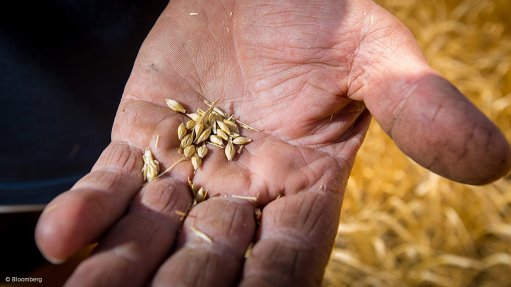
AGRICULTURE SECTOR DEBATED Agriculture contributes 2.4% to the gross domestic product, which makes it the smallest economic sector in South Africa
While the future of the agriculture sector is often debated at farmers conventions, during general council meetings, in the media and in the political arena, it is now becoming a pertinent topic among investors and agricultural companies, says First National Bank (FNB) agricultural marketing and information head Dawie Maree.
“There is no doubting the importance of the agricultural sector, but the fact remains that it is not the largest sector in the country. Truth be told, agriculture contributes only 2.4% to the gross domestic product (GDP), which makes it the smallest economic sector in South Africa,” he says.
Maree adds that primary agriculture’s relatively small contribution to the economy is not unusual, given the limited development of the country’s economy. In other countries that are exhibiting economic growth on a large scale, including most African countries, the agriculture sector is a major player, which contrasts with developed economies.
Maree believes it is still safe to argue that the broader agriculture sector’s contribution would be closer to between 15% and 20%, should primary agriculture be grouped with the industries that it contributes to – or buys from, such as the chemicals industry.
He adds that agriculture is important to the South African nation, which is why there is constant speculation about the future of the country’s agriculture sector. There are several reasons for this, including stakeholders’ direct interest in the sector, as well as the emotional connection to the soil, which stems from the culture or background of some people.
Maree also recognises the high average age of local farmers, another regular point of discussion among interested parties and stakeholders in the farming community. He adds that this is, seemingly, a worldwide trend, as the majority of farmers are from the older generation.
However, Maree disagrees on the issue of age, based on the representation of youth at key agriculture events, such as Nampo and the Rysmierbult Farmers Association’s Green Day. Both these events were very well represented by the younger generation this year, which represents an average age of attendance of between 45 and 50 years, compared with other statistics, which state that the industry’s average age is above 60.
“One has to recognise that younger farmers, as well as younger company representatives, were involved in these two gatherings,” says Maree.
FNB encourages and welcomes young farmers into the agriculture community, as it believes that younger farmers are at the forefront of innovation. Maree notes that the significant role of technology in the modern age extends to the agriculture sector, which influences young farmers to embrace, employ and market technology to the extent that it allows for new technology to be the game changer and to continuously propel the industry forward.
“The future of this very important economic sector is extremely positive and FNB Agriculture is proud to be part of it,” he concludes.